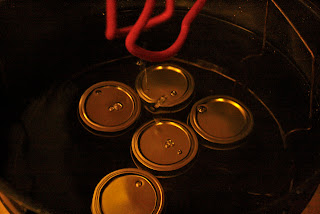It is remarkable how closely the history of the apple tree is connected with that of man.
-Henry David Thoreau
With ever-darkening days full of cold rain, it was especially cozy to spend yesterday evening amidst the warm smells of apples, cinnamon & cardamom. Leanna led an excellent workshop on three ways to preserve the iconic bounty of fall: Apples.
Workshop participants chopped local honeycrisp apples to make a cardamom apple compote (recipe to follow), as well as made apple jelly from local cider and canned homemade apple butter.
Unfortunately the lack of evening light meant that the workshop had to be held indoors, and as such, this is a disclaimer as to the lack of vibrancy in the photos here...
But, the lively conversation and warm cooking smells made up for the 'indoor-ness' of the evening.
Participants discussed the value of food preservation in light of food security issues and also the importance of following food safety regulations when canning.
All participants took home a jar of their choice of apple compote, apple jelly, or apple butter. When properly sealed, these delicious condiments will keep for up to a year!... thereby extending the bright flavors of fall into the dark days of winter.
This workshop is the culmination of our 2011 series. We are busy planning upcoming workshops beginning in February. Stay warm and stay tuned!
Apple Cardamom Compote
(from an old Orchard Garden recipe)
Ingredients:
7-8 medium apples, chopped into cubes
1/2 cup water
juice of 1/2 lemon
1 kg demerara sugar
1/4 (or less depending on taste preference) cardamom
1 tbsp. cinnamon
1 tsp. nutmeg
2 tsp. ginger, minced
dash of rum
250ml canning jars
Put apples, water, & lemon juice and 1/2 kg. sugar in a large pot. Simmer until apples soften. Add remaining sugar, cook for 10-20 minutes more. Add spices & dash of rum; simmer for 5-10 minutes more. Pour warm jam into clean, sterilized jam jars & seal them. In a large pot, process jars for 10 minutes in a boiling water bath. Let sit for 24 hours. Will keep for 1 year if properly sealed.




















